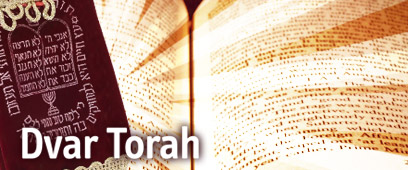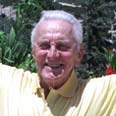

Kirk Douglas
Photo: AP
In the summer of 2001, I led a Jewish history tour to Spain, and one of the cities we visited was Cordova, the city where the Rambam, Maimonides, was born in 1135 and was raised until he had to flee for his life in 1148 at the age of 13 because of the invasion of a radical group of Muslims.
- To listen to the Dvar Torah please click here
Although he only lived in Cordova for 14 years, the city has adopted the Rambam as one of their heroes. In the center of what was once the Jewish Quarter, they have erected a statue in his memory, based on the image in the Israeli bill.
This statue is a major tourist attraction for Jews and non Jews. So when our group stood at the statue, there was a group of Japanese tourists there. What was amazing was that each of the tourists stepped forward and rubbed the statue’s feet, nothing else, just the feet. They didn’t know much about the Rambam, but they still rubbed his feet with great respect.
Our local tour guide inquired and told us that they believed that if you touch this man’s shoes, you would be blessed with wisdom. As soon as the members of our group, all Orthodox Jews, heard this, they too started to rub the Rambam’s shoes. The kids on the trip rubbed especially hard. I asked one of the teenagers if she really believed this would help, and she gave me a very Jewish answer “It can’t hurt. I have SAT’s coming up this month.”
Bracha and Teshuva
As the collective national SAT exam known as the High Holidays approaches, instead of rubbing the shoes of the Rambam, it would be wise to learn an insight on repentance he inspired.
When a Jew does a mitzvah, it is always accompanied by a bracha. So why is it that there is no blessing on the mitzvah of Teshuva? The great 19th century Talmudic Scholar the Netziv, Rabbi Naphtali Tzvi Yehuda Berlin, suggests that we never make a bracha on a mitzvah which is a thought process, and Teshuva is in essence a thought process.
The problem I had with this was that we make a bracha every day on Torah study, even though that is the ultimate thought process. Perhaps we can answer this with another 19th century thinker, Rav Tzadok of Lublin. He says that indeed Torah study is a thought process. However, the bracha we recite is not on studying Torah, but “La’asok B’Divrei Torah”, to be involved in Torah. This, Rav Tzadok explains, means the mutterings of Torah.
What are the mutterings of Torah? These are the care and concern one shows to his fellow man, the shalom extended to a stranger to make him feel welcome, raising funds for Israel in her time of need.
Little heroes
In an Op-ed article in the New York Times a few years ago, the actor Kirk Douglas made the following observation. He had just returned from Berlin to receive a reward from Berlin Film Festival. While in Berlin he had dinner with a Jewish woman who had lived through the holocaust and stayed in Berlin.
Douglas asked her why a Jewish person would stay in Germany, and she said she owed her life to the little heroes. Who were these little heroes? She explained that when the Gestapo came to get them, her parents sent her to a little hotel to stay for a few days. The owner was the first little hero, keeping her safe for a few nights.
Then she stayed by her former housekeeper, another little hero who kept her safe for another few nights at risk of her own life. There were a number of little heroes who protected her along the way.
Douglas said that we are always looking for the big heroes in life to emulate, but very often we see them topple. How much better it would be to reach for the little heroes in life and try to be one. It’s not always as hard as it was for the people in wartime Berlin, you only need to try to help other people. If everyone tried well, just think about the lifetime of achievement.
Douglas is talking about the mutterings of Torah. This is what Torah is all about, and this is what Teshuva is all about. It’s learning to be a caring good person who helps everyone and cares for everyone. This isn’t a thought process, it’s action, and that’s what Elul and Teshuva are all about.
Rabbi Elazar Muskin is the rabbi of Young Israel of Century City synagogue, Los Angeles
Courtesy of the Orthodox Union Take Five for Torah program















